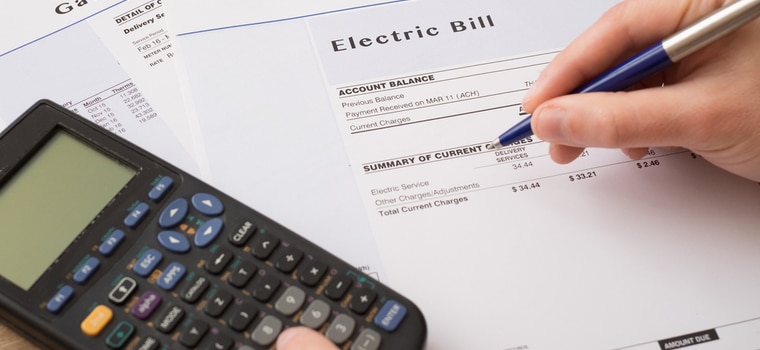Most utility companies do not report your payment records to the major credit reporting companies. Your payments will not appear on your credit report and will not affect your credit. If you fail to pay a utility bill and it is sent to a collection agency, the collection agency may open a collections account and report that to the credit reporting bureaus, and that could damage your credit.
In general, your utility payment record will not affect your credit scores. It is possible that it can still help you to get a loan, however. Some lenders may be willing to consider your bill payment record when making lending decisions.
Why Don’t Utility Companies Report Your Payments?
The data on your credit report is voluntarily submitted by your creditors. No company is required to report accounts or payment information.
Companies who report data to credit reporting companies are subject to the provisions of the Fair Credit Reporting Act, which requires regular updates and requires companies making reports to resolve disputes. Utility companies don’t necessarily want to deal with those requirements and restrictions, so they usually don’t report to the major credit reporting companies.
Many utility companies do report to the National Consumer Telecoms and Utilities Exchange (NCTUE), a specialized credit reporting company handling only this type of information. These reports will not affect your credit but if you have a bad payment record you may have a connection request refused or you may have to pay a large deposit in order to get connected.
Delinquent Accounts Can Be Reported
If you fail to pay a utility bill, the company may turn your account over to a collection agency. Many collection agencies specialize in utility bill collection and utilities may turn accounts over to collectors faster than many other creditors.
Once your account is in the hands of a collection agency it will usually be reported as a collection account on your credit report. This can do significant harm to your credit and to your ability to get loans. Collection items will remain on your credit report for seven years from the date of your first missed payment.
Your Bill Payment Record Can Help You Get Credit
A good bill payment history will usually not appear on your credit report and does not contribute to your credit score. Paying your bills on time won’t help your credit, but not paying on time can hurt it.
Times are changing. Your on-time utility payments still won’t show up on your credit report. A growing number of lenders are now considering information that is not on your credit report when making lending decisions, however. These alternative data include income, employment history, rent payments and utility payments, all of which have traditionally been excluded from credit reports.
If your credit is subpar or you don’t have enough credit information to generate a score, look for lenders that use alternative data in lending decisions. If you have a good record of making utility or rent payments, that record may count as a point in your favor and could be enough to get you a favorable decision on a credit application.
In Closing
Most utility companies do not report your payment record and your utility bill payment record will usually not appear on your credit report. That doesn’t mean you can neglect utility bill payments. Aside from the possibility of having service cut off, a delinquent account may be turned over to a collection agency and reported as a collection item. That can do serious damage to your credit.
If you’re looking for ways that your bill payment record can help your financial history, look for lenders that consider alternative data in lending decisions.





